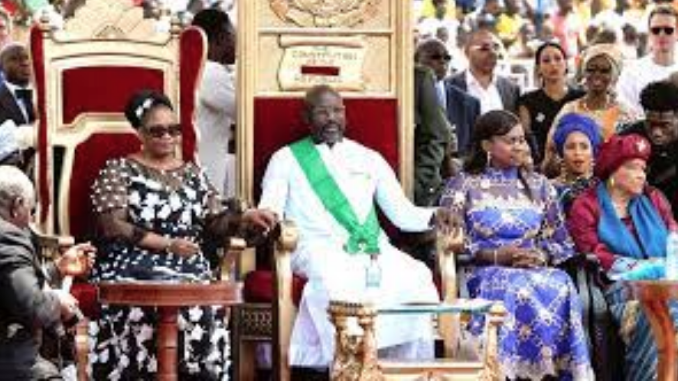
On Feb. 5, 1820, the first organized group of emigrating freed slaves departed from New York to Freetown, Sierra Leone, in West Africa.
Next year, Liberia will mark the date with a bicentennial celebration beginning January 2022 and running through December 2022, according to a recent announcement by President George Manneh Weah.
A steering committee constituted by President Weah will plan and carry out appropriate activities for the event. The N.Y.C.-based Ice Miller Strategies has signed on as the lead Public Affairs shop for Liberia. It will represent Liberia before the Biden administration, Congress, federal agencies and multilateral groups that have stakes in Liberia’s economic and national security interests, according to its engagement letter.
The shop will develop and execute a US media strategy for Liberia, Weah and other Liberian officials to raise the country’s profile. Liberia will pay Ice Miller $300K annually for a three-year period that began Aug. 1. There is an option to renew for another one-year period.
Strom Public Affairs is in line for a $10K monthly fee for its three-year effort, while Carbon Thread will earn $20K per month. Both are managed by Ice Miller.
“The year is of high symbolic significance as it commemorates 200 years since the first group of freed slaves touched down on what came to be known as the Providence Island,” President Weah said.
According to the Office of the Historian of the Foreign Service Institute, U.S. Dept. of State, the founding of Liberia in the early 1800s was motivated by the domestic politics of slavery and race in the United States as well as by U.S. foreign policy interests.
In 1816, a group of white Americans founded the American Colonization Society (ACS) to deal with the “problem” of the growing number of free blacks in the United States by resettling them in Africa. Land for settlements of the African-Americans was difficult to obtain as the indigenous population was unwilling to part with lands they owned and the settlers for the most part did not integrate with the indigenous societies.
Today, about 5 percent of the population of Liberia is descended from these settlers.
London was the first to extend recognition to the new republic, signing a treaty of commerce and friendship with Monrovia in 1848. Because of fears of the impact this might have on the issue of slavery in the United States, Washington did not recognize the nation it had played a role in creating.
The United States finally established diplomatic relations with Liberia in 1862, and continues to maintain strong ties with the West African nation despite significant strains during Liberia’s two civil wars. In recent years, congressional interest partly has centered on the immigration status of over 80,000 Liberian nationals resident in the United States.
Recent protests and instances of inflammatory rhetoric have raised concerns over political tensions in the country. In May 2019, the U.S. Embassy condemned ethnically divisive statements by politicians, reproaching those who “incite unlawful acts through ill-considered rhetoric that could jeopardize Liberia’s hard-won peace and security.”
The U.S. Embassy also has warned Liberia’s opposition against using charged rhetoric, as it has called on the Weah administration to respect political freedoms. Mounting socioeconomic pressures and calls for governance reform and postwar accountability are key challenges facing Liberia’s fledgling democracy; how the country’s political class responds to such forces will have implications for Liberia’s trajectory.

Be the first to comment